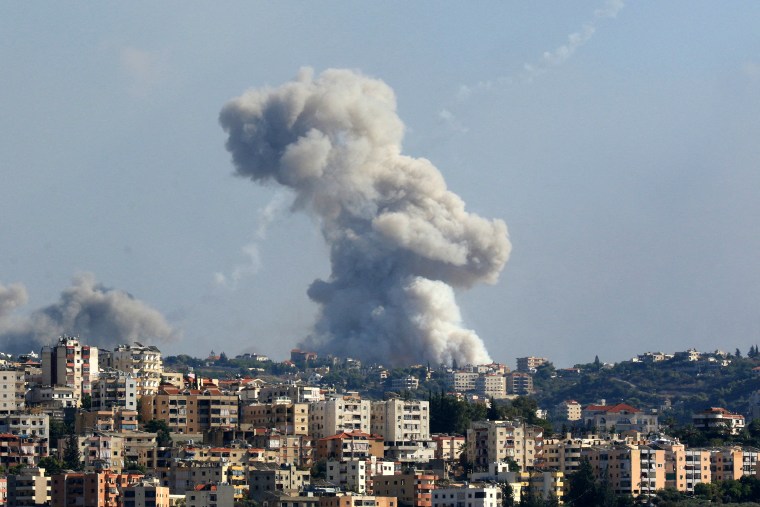The Defense Department plans to send a few dozen U.S. troops to the Middle East in the coming days to be ready to help Americans flee a region bracing for a significant escalation in the simmering conflict between Israel and the Iranian-backed militant group Hezbollah in Lebanon, according to three defense officials.
The U.S. forces will add to the roughly 40,000 troops already in the region — a presence that has grown as the war between Israel and Hamas continued and tensions with Hezbollah intensified. The new troops will have a different mission, the officials said, specifically to be on standby if the fighting between Israel and Hezbollah threatens Americans and evacuations are needed.
The Pentagon press secretary, Maj. Gen. Pat Ryder, said Monday that the U.S. was sending a small number of additional American forces “to augment our forces that are already in the region.” He declined to identify how many of the additional troops would be deployed, why or where, citing operational security.

Biden administration officials are concerned about a lack of understanding about what Israel’s plans are when it comes to conflict with Hezbollah, an issue that has also arisen at times during Israel’s war against Hamas.
On Monday, Israel dramatically expanded its aerial assaults on Lebanon with airstrikes that killed nearly 500 people and wounded more than 1,600.
While Biden administration and Israeli government officials speak and meet frequently, Israel has not been sharing detailed information about its military movements, according to the three U.S. defense officials.
There is growing concern in the administration that, nearly a year since the start of the war between Israel and Hamas, the U.S. has lost the ability to prevent a wider conflict — despite months of intensive efforts — and that any hope for a cease-fire deal in Gaza has diminished.
Israel and Hezbollah have been launching more missile attacks on each other. Israel ratcheted up tensions with an operation last week detonating explosives in pagers and walkie-talkies it had secretly supplied to Hezbollah militants.
Israeli Prime Minister Benjamin Netanyahu’s government has warned of coming military strikes, but Israeli officials have not told U.S. officials whether or when a ground offensive could begin, the three defense officials said. That has left the U.S. to have to search for indicators of a ground movement, such as Israel’s calling up large numbers of reservists or moving columns of tanks toward the Lebanese border, the officials said.
The officials estimate a large offensive into southern Lebanon would take thousands more troops and armored vehicles, in addition to forces to hold any territory. While the Israeli military has moved a brigade and some equipment toward the northern border with Lebanon in recent days, there are no indications that a ground offensive is imminent, according to the defense officials.
In addition to tens of thousands of U.S. troops in the region, the Biden administration is considering options to send other military assets to the region.
The aircraft carrier USS Harry S. Truman recently departed Norfolk, Virginia, for a scheduled deployment to Europe. But if the fighting in Lebanon grows, the carrier strike group, which includes multiple ships and aircraft, could be redirected to the Middle East to join the USS Abraham Lincoln carrier strike group to further bolster the U.S. presence.
The conflict between Israel and Hezbollah could dash already dwindling hopes for a cease-fire deal and hostage exchange with Hamas.
President Joe Biden directed his administration this month to prepare to present its best and final offer for a cease-fire and hostage deal, with the goal of proposing it ahead of the United Nations General Assembly’s kicking into high gear this week, according to two current and one former U.S. official familiar with the planning. Biden administration officials saw a possible advantage in such timing, with the world watching the events at the U.N. in New York, to urge all sides to accept a deal now, the officials said.
Biden is not scheduled to meet with Netanyahu on the sidelines of the General Assembly this week.
The idea of putting forward such a proposal has been delayed amid rising tensions. Yet even as a cease-fire deal hangs by a thread and the Middle East is on the brink of a larger conflict, with Israel not sharing its plans with the U.S., the Biden administration continues to support Israel with weapons sales and shipments, officials have said.





